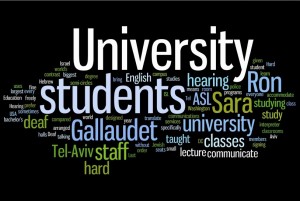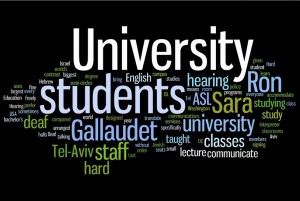The post “Evaluate Me, Please” on Teach from the Heart Blog REALLY struck a chord with me.

So much so that here I am, writing about it. In particular, I need to expand on this quote:
“Don’t assume you know my kids as well as I do. That little boy with his back to me? Yeah, I know he’s off-task, but six months ago he would’ve thrown a desk when he was angry. Now he just turns his back. If I leave him alone, he’ll calm down and eventually apologize. If I say something to him now he’ll explode.”
In my class it wouldn’t be a little boy. It would be a teenage girl who is engrossed in cutting off threads coming out of her cloth pencil case. She can’t focus on anything else until the offending threads have been dealt with. Once she’s done she’ll work quickly and nicely. However, if I try to stop her now we may end up in the principal’s office. Or it would be the huge teenage boy who says swear words to himself as he works. That’s significant progress – he used to swear at other students and get into fights which lead to trouble. As long as he does it quietly with his head down I’m thankful my students don’t hear well and ignore the behavior.
The problem lies with “the other” people. As opposed to “Teach from the Heart”, I don’t get officialy evaluated. At all! However, that doesn’t mean I’m not being judged.
First of all, there are the young teacher’s aids which I have for part of the lessons. I’ve had cases where I had to talk to them several times so that they wouldn’t loudly draw attention to a child off-task during the lesson. It is sometimes difficult for them to understand how a teacher could not expect everyone to behave like little angels and ignore some things!
Then there are the students themselves. Particularly 10th graders, which are new to the high-school. As I teach mixed classes (all 3 grades together) there’s always at least one student who takes it upon himself / herself to monitor what everyone else is doing and report it to me, loudly. And since that means that student isn’t working, he or she is so indignant that I’ve ignored a behavior the teacher from last year would never have ignored… now, of course, I can’t pretend not to notice and have to diffuse a situation that could easily escalate when it could have simply been avoided!
Anyway, when you visit my class, which I hope you do, remember that there is a reason for everything, which I”ll be happy to exlain after the class!
I really recommend reading the full “Evaluate Me, Please” post.







